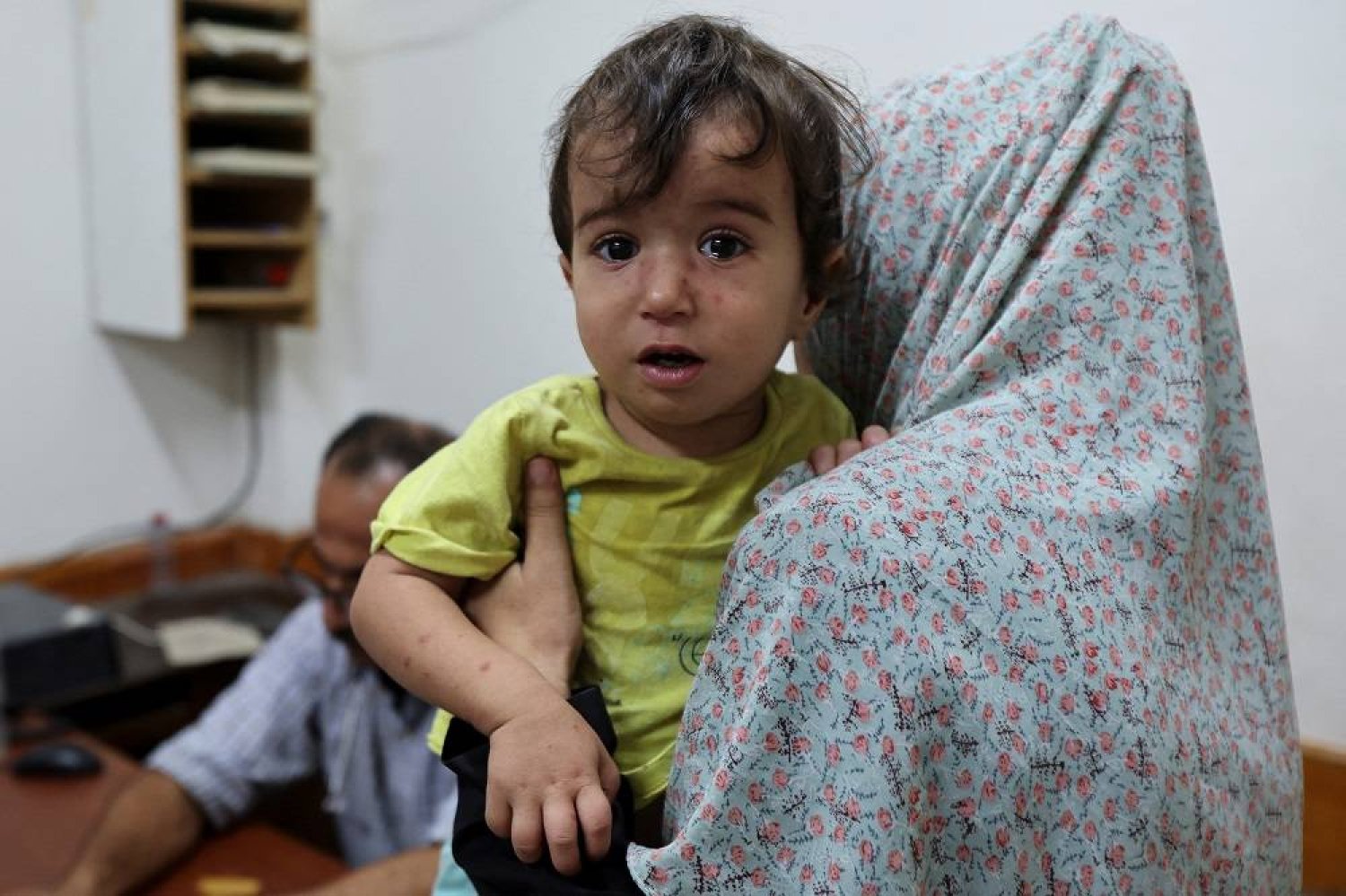On Friday, United Nation Secretary-General António Guterres called for a weeklong cease-fire in Gaza to enable a polio vaccination campaign, highlighting the risk to many children. His appeal came shortly before the Gaza Health Ministry confirmed the first polio case in years.
Guterres stressed that controlling the virus would require a coordinated, urgent effort. He noted that such a campaign is impossible amid ongoing conflict. He warned that failing to contain the disease quickly could lead to its spread to neighboring countries.
“The ultimate vaccine for polio is peace and an immediate humanitarian ceasefire,” Guterres said.
“In any case, a polio pause is essential,” he added.
In a statement on Friday, Hamas said it supported the UN’ request for a seven-day truce for vaccinations.
Impact of polio outbreak in Gaza
Polio is a highly infectious virus that attacks the nervous system, potentially causing complete paralysis within hours and, in severe cases, death, according to the World Health Organization. It spreads primarily through direct contact or contaminated food and water, multiplying in the intestine.
On Friday, the Gaza Health Ministry attributed the reappearance of polio to the “difficult” conditions in the territory. These include widespread sewage in the streets, shortages of medical supplies, and a lack of personal hygiene products, all exacerbated by the Israeli blockade.
Gazan health officials reported that several children showed symptoms of polio, with lab tests confirming that one was infected with the virus. The virus was detected in wastewater from Khan Younis and Deir al Balah, areas housing large numbers of displaced Palestinians.
Children make up roughly half of Gaza’s population of about 2.2 million, with over 340,000 estimated to be under the age of 5, according to the Palestinian Central Bureau of Statistics.
The risk of polio spreading in Gaza and beyond is high due to gaps in children’s immunity from disrupted vaccinations. The situation is worsened by a collapsed health system, ongoing displacement, malnutrition, and damaged water and sanitation systems, written in The New York Times.
Vaccination campaign for over 640,000 children
Two rounds of polio vaccinations are planned for the end of August and September 2024 across the Gaza Strip to combat the circulating variant type 2 poliovirus, according to the Global Polio Eradication Initiative and the World Health Organization.
UN Secretary-General António Guterres stated that the UN is ready to launch a large-scale vaccination effort targeting over 640,000 children under 10 in Gaza, with the WHO approving the release of 1.6 million doses.
WHO and UNICEF are calling for seven-day humanitarian pauses in the Gaza Strip to facilitate these vaccinations. These pauses would allow children and families to safely access health facilities and enable outreach workers to reach those unable to visit clinics.
The Israeli agency responsible for Palestinian territories, COGAT, has announced its collaboration with WHO and UNICEF on the campaign.
António Guterres emphasized that executing this operation will require ensuring safety and access for medical workers and recipients, as well as securing equipment for vaccine refrigeration, fuel, cash, and communication services.
Without these humanitarian pauses, the vaccination campaign cannot proceed.


